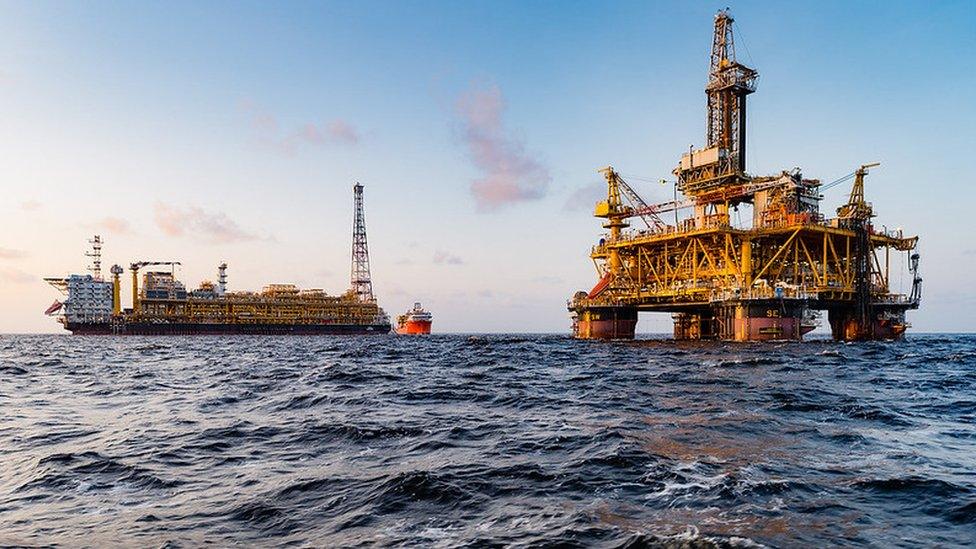Trade Down Under: no worries, mate?
- Published
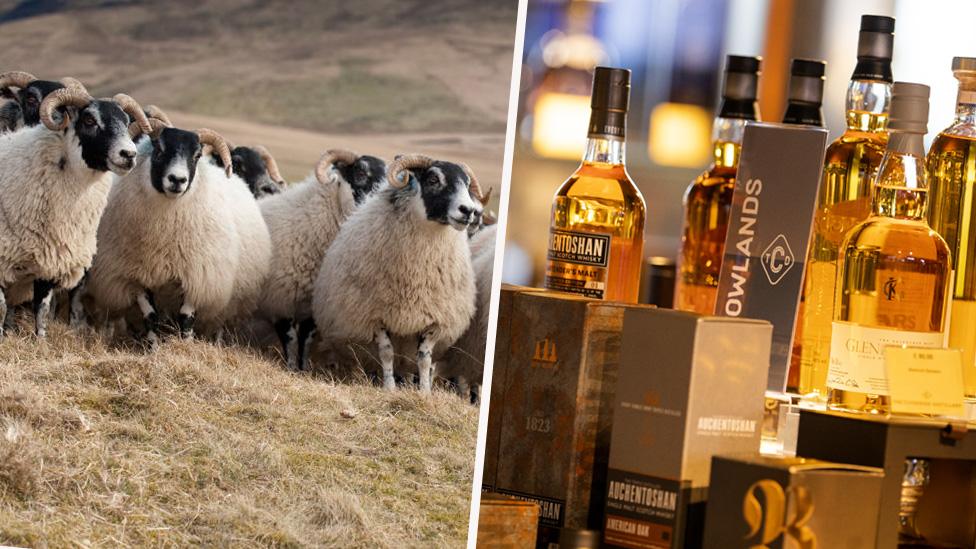
An imminent trade deal between the UK and Australia sets the tone for post-Brexit deals around the world, and highlights the reality that there are winners and losers.
Sheep farmers, disproportionately important to Scottish agriculture, are probably the most vulnerable, but UK ministers emphasise there are benefits for whisky exports.
Outside the European Union, the British economy is bound to change. A key question now is how that happens - who wins and who loses - if trade deals seem to lack much input from outside government.
Economic theory tells you that everyone should win from trade. Reality, however, looks different.
The positive part of the deal is that opening up foreign markets should create opportunities to export.
And that's the message being sold today at a whisky distillery in East Lothian.
Trade minister Graham Stuart is due at the Diageo facility, to emphasise the benefits of removing the 5% tariff on Scotch as it's unloaded onto the quayside Down Under.
The tariff has not stopped Australia becoming the industry's eighth-biggest export market, ahead of Spain.
But the Scotch Whisky Association, obviously, welcomes a cut in tariffs, just as it would like legal reinforcement from Canberra in protecting the Scotch brand.
However, deals require reciprocal measures, and allow foreign companies easier access to domestic markets.
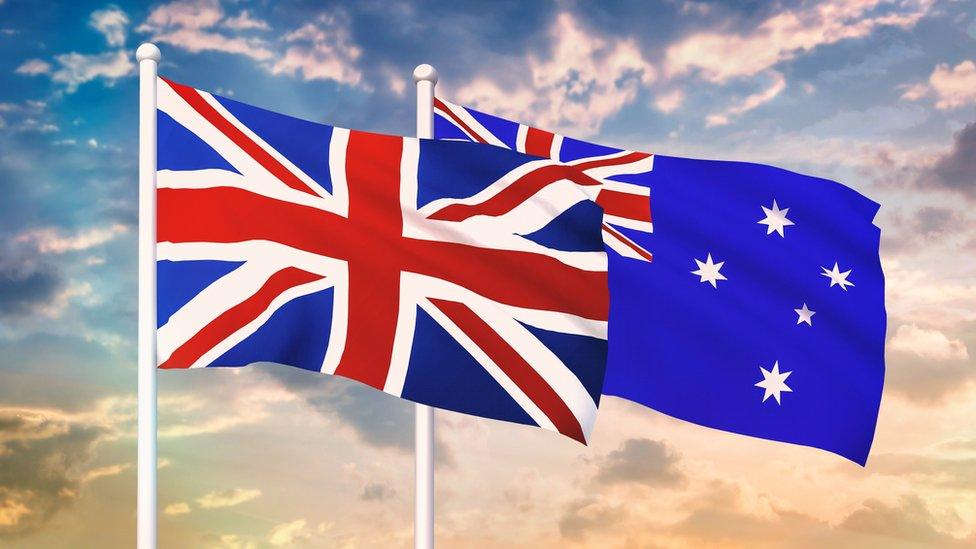
A UK-Australia trade deal is close to being concluded
Such measures are likely to be more significant where one side of the negotiations has placed time pressure on itself, as Britain has.
It's in a rush and, post-Brexit, the government has a point to prove. Australia has experience of trade talks, and it can take its time. (You can read more about it, courtesy of the BBC Reality Check team.)
UK ministers want a deal to coincide with the G7 summit in Cornwall next week, but it's now reported that Boris Johnson may have to wait for talks with his opposite number, Scott Morrison, after the main six guests have departed.
They also want to send a message that this deal is part of a strategy to get into a trading bloc including 11 diverse countries around the Pacific rim, from Australia to Vietnam, South Korea, Mexico, Japan and Canada.
Together, last year, they bought around a fifth of the value of British goods exported to the European Union. The British government's intention is to expand that, but it has a long way to go if it is to replace Europe and compensate for the trading advantage of Europe's proximity.
Carbon hoof print
Inevitably, these countries want to break down barriers to British markets, built up during nearly 50 years of having trade negotiated exclusively by Brussels. And Europe's trade negotiators have built a formidable fortress around the continent's farmers - boosted by subsidy and protected by tariffs and quotas.
Outside Europe, Britain's farmers feel exposed. They can see trade negotiators going after that protection.
So the prospect of Australian beef and lamb entering the British market with neither quotas nor tariffs is the big concern. That's why I've been near Aberfeldy this week, on an idyllic day on the sheep and cattle hill farm run by Martin Kennedy, president of the National Farmers Union Scotland.
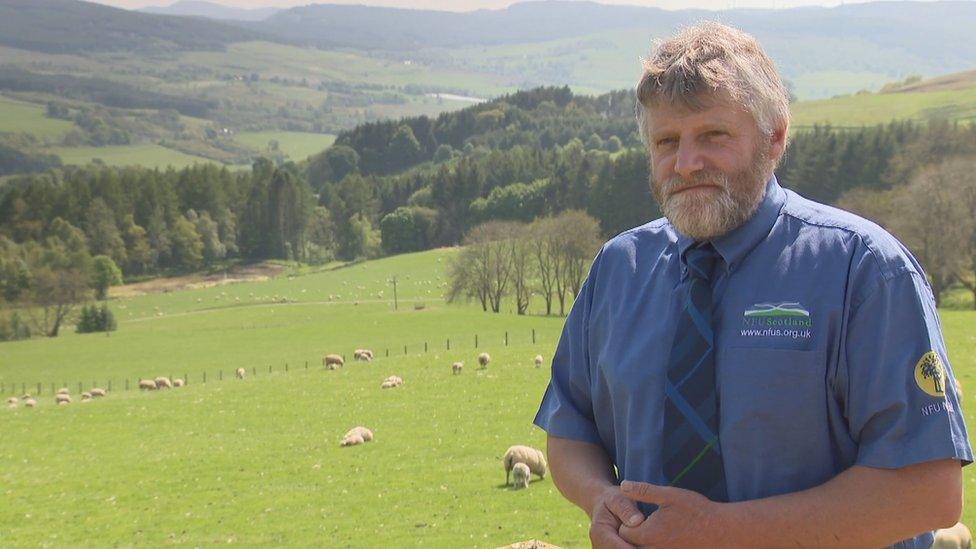
NFU Scotland's Martin Kennedy wants assurances that domestic production will not be harmed by the trade deal
The issues affecting Scottish farmers are similar to those in other parts of Britain. But because sheep farming is such an important part of Scottish agriculture, and also Welsh, the impact on farmers - and on politics - is likely to be disproportionately large.
Britain looks to Ireland for much of its beef, and it could be Irish farmers who are more affected by competition in the UK from Australian cattle farmers.
Kennedy points out that Australia produces in much more efficient units. A beef farmer typically has more than 10,000 head of cattle, and feeds them industrially and intensively.
Their carbon footprint is therefore far higher, he claims, and that's before accounting for the cost of transportation halfway round the world.
Lambs to the slaughter
Meat exporters Down Under don't want to big-up the scale of sales they could achieve in the UK - not while the issue is so sensitive. But nor are they pretending this would be insignificant.
One prize for them is to diversify markets away from dependence on trading partners such as China, which is becoming increasingly hostile to Canberra and deploying its might to shift the terms of trade.
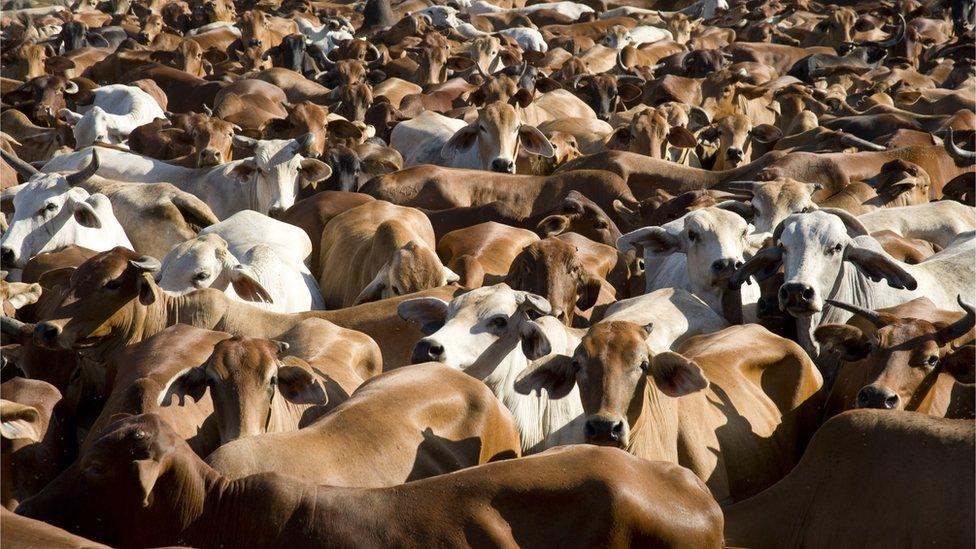
Australian cattle farms often benefit from economies of scale
They used to be even more dependent on exports to the UK, but found themselves largely locked out when Britain joined the European common market in 1973. Diversity of markets matters to them.
As quotas and tariffs on British sales are removed over 15 years or so, which is reported to be in the trade deal, Australians also see the opportunity in catering and wholesale, where consumers rarely check the provenance of what they're eating.
British farmers raise concerns about lower Aussie food standards and animal welfare. On the time that live animals are allowed to be in transit, the criticism is valid.
But as Australia already exports beef and lamb in relatively small quantities (with quotas and high, effective tariffs), Britain is already willing to accept those standards.
As part of the EU, the UK has had a ban on hormone-injected beef, and Australia has been willing to recognise that, exporting only the non-injected variety.
In recent years, that has come to 0.5% of Britain's beef consumption. Sheep exports from Australia to Britain have been bigger.
British seasonal supplies decline each year, from around now until this spring's lambs are slaughtered from late autumn.
During that period, demand is met by imports of around 100,000 tonnes of sheep meat annually, say Britain's meat processors - 70% of that from New Zealand and 15% from Australia. That's subject to quotas, and Aussie lamb has carried an effective tariff of around half its export value.
How much that grows with a trade deal will determine the future of many upland farms.
Going with the grain
And that's true of much of the economy. The way it has developed within the European Union has responded to price signals in markets, subsidies and trade protections.
As these signals shift, and competition also shifts, there are bound to be winners and losers.
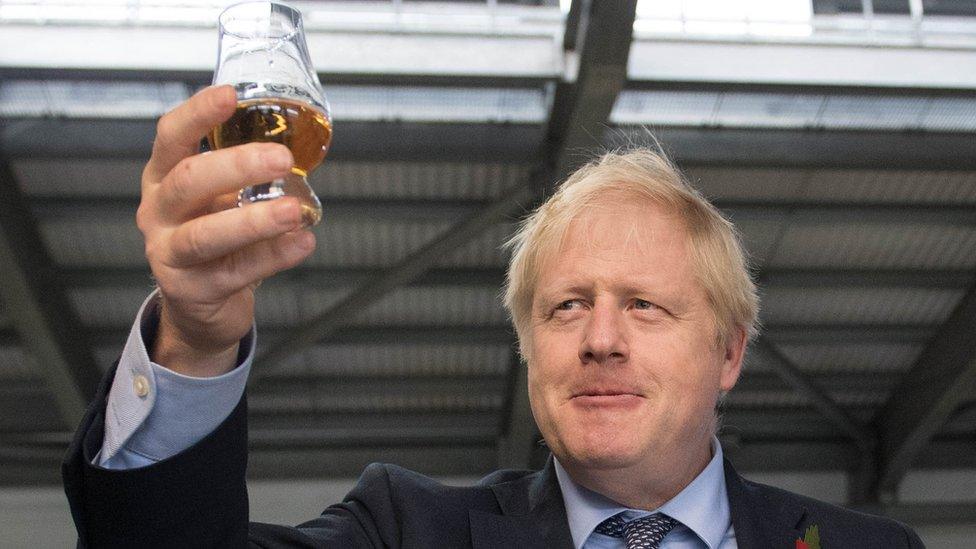
Boris Johnson argues that many sectors such as whisky production will benefit from new trade deals
Scotch whisky is such a strong global brand that it is almost always a winner from trade liberalisation. British finance could get openings into foreign markets, though that is much tougher to achieve than trade in goods.
British food production is likely to be the most vulnerable to this process, having been the most protected.
Where Australia sets expectations, others will follow. Other countries will want to sell Britain their grain, which could hit English farmers disproportionately hard.
India hopes its primary export will be human, with pressure to open up work permits for its professional workers.
Taking back control
All this means pressure points, by business, trade unions, and groups campaigning to protect the environment, animal welfare or human rights.
If this Australian deal is any guide, Whitehall wants to negotiate in private. It will choose who gets to lobby, and when.
The commission which was supposed to be in place, to scrutinise such deals before they are signed off, does not yet exist.
A key reason for the Brexit vote in 2016 was the electorate's kick against globalisation, and a sense that people lacked control over economic forces that shape their lives, communities and jobs.
The process by which such deals are done this month and in the future will determine just how much people are "taking back control" or simply handing it to a different set of elite negotiators.
- Published26 May 2021
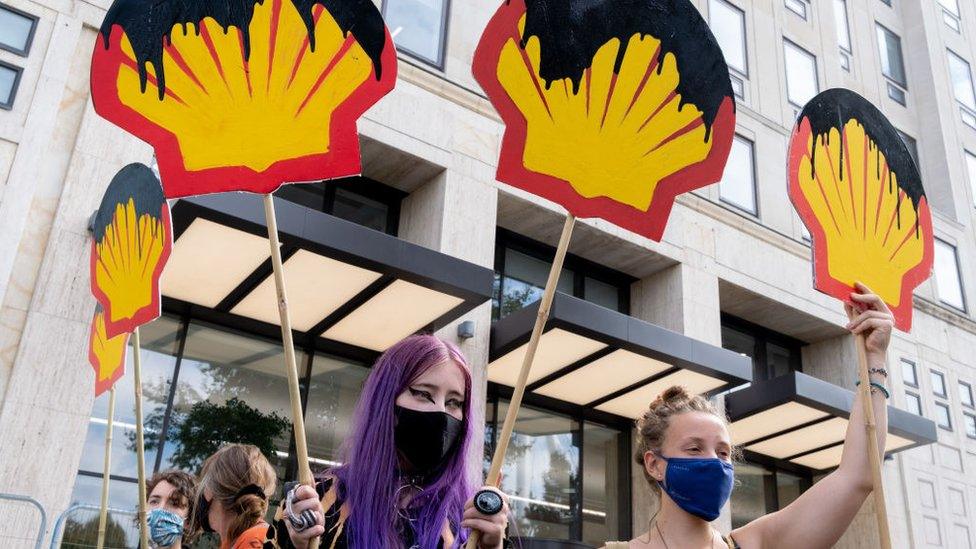
- Published28 May 2021
